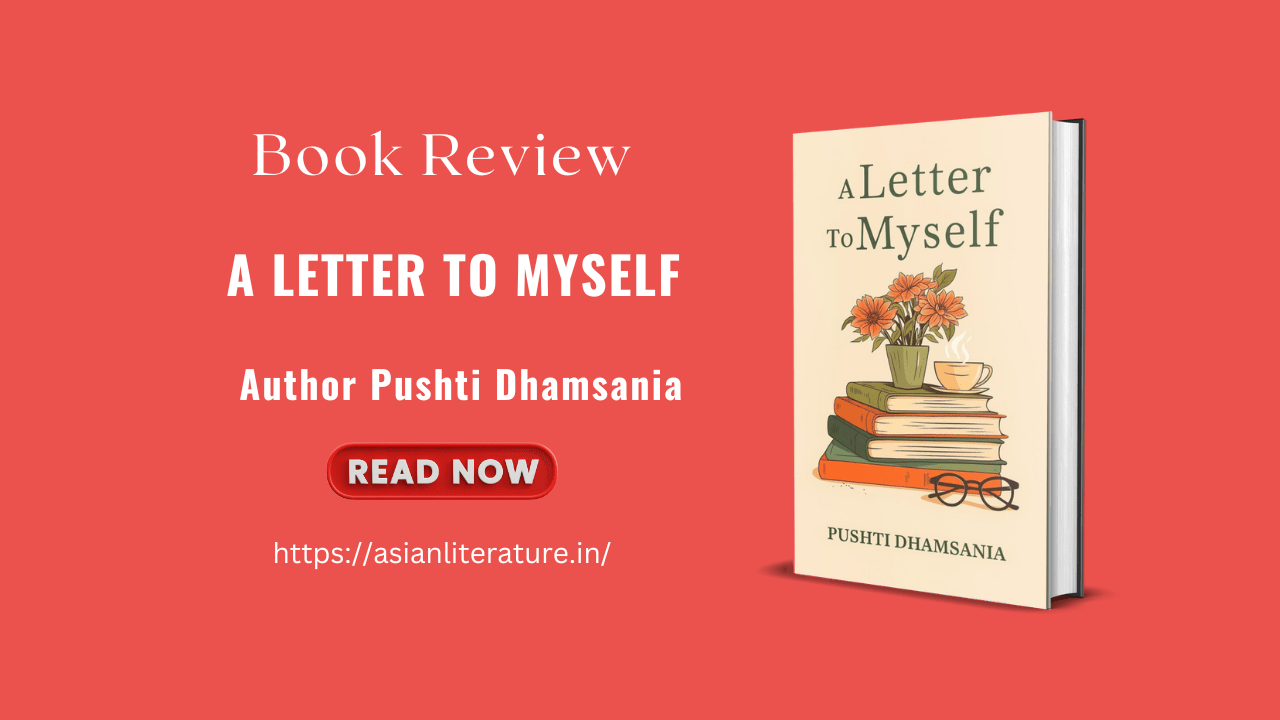
A letter To Myself
Pushti Dhamsania’s A Letter to Myself is less a conventional poetry collection and more a quiet, unfolding conversation with the self. Spanning eight parts—each beginning with a tender salutation to “Dear Me”—the book creates an intimate space where grief, healing, and reclamation coexist. From the very first line, Dhamsania positions the reader not as a passive observer but as a confidant. This is poetry designed to be inhaled slowly, like a whispered reassurance in the dark.
Thematically, the book is a sustained meditation on self-love and resilience. Dhamsania’s voice moves from raw vulnerability to gentle triumph: “I thought healing meant forgetting, but maybe it means remembering without crying,” she writes, setting the tone for a journey that acknowledges pain without glorifying it. Her poems speak to anyone who has ever felt invisible in a relationship or lost in their own life, offering a subtle but powerful reminder that choosing oneself is an act of courage, not selfishness.
Structurally, the collection benefits from its deliberate pacing. Each section charts an emotional arc—healing, loss, boundary-setting, renewal—mirroring the slow rhythm of recovery. The use of free verse and spare, unadorned language mirrors the internal dialogue of someone piecing themselves together. There is no forced rhyme, no ornamental flourish; Dhamsania’s strength lies in clarity and emotional precision. The poems read like journal entries polished just enough to share, which is both their charm and their challenge. Readers seeking complex metaphor or experimental form might find the simplicity too plain. Yet, for many, that same simplicity will feel like oxygen.
What elevates the collection is its universality. Although steeped in personal experience, these poems speak across gender and culture. Dhamsania writes of relationships marked by silence, subtle control, and quiet departures—scenarios painfully familiar to many. Lines such as “Love isn’t supposed to bloom from pain. So one day, I left the flowers to die” capture the quiet devastation of emotional manipulation in a way that transcends specific identity.
Still, the book’s intimacy can verge on repetition. Certain motifs—mirrors, locked doors, unspoken goodbyes—reappear so frequently that their impact softens over time. A more varied imagery could have deepened the emotional resonance. Yet, even when the language circles back on itself, the intent feels purposeful, like a mind revisiting old wounds until it is ready to let them go.
Ultimately, A Letter to Myself is a balm for readers navigating loss, heartbreak, or the long road back to self-worth. Dhamsania’s debut reminds us that healing is rarely linear and never loud. It is the soft persistence of choosing to stay, to breathe, and to begin again.
Title: A Letter to Myself
Author: Pushti Dhamsania
Publisher: Evincepub Publishing
Buy Link : Amazon

